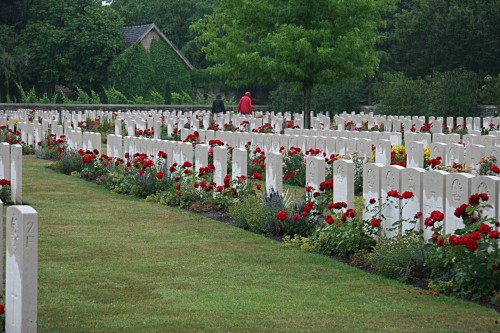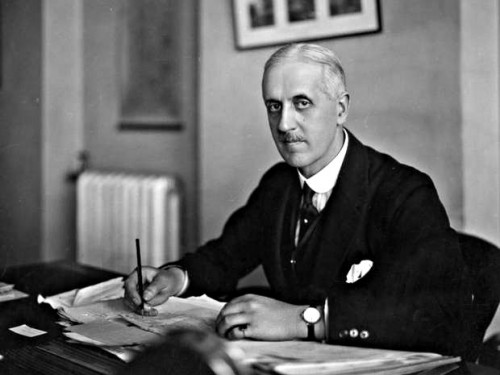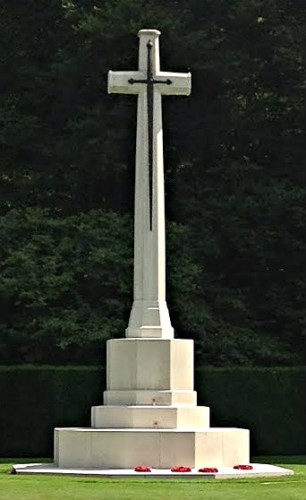“By all means have memorials. Make them out of Government stone if you like. Make them uniform. But you have no right to employ, in making these memorials, the bodies of other people’s relatives. It is not decent, it is not reasonable, it is not right.”
“When the widows and mothers of our dead go out to France to visit the graves they will expect to find that equal honour has been paid to all who have made the same sacrifice and this result cannot be attained if differences … are allowed in the character and design of the memorials.”
The words in the first quote were spoken by Viscount Woolmer in a parliamentary debate in 1920. He spoke for many — but by no means all — parents of dead soldiers who either wanted their sons home, buried in the village churchyard, or commemorated more fittingly, in accordance with their beliefs and values, where they lay. By what right did the British Army commandeer their bodies and prescribe their memorials?
The words in the second quote were issued by the Trades Union Congress and reflect the growing democratic values of the time.
Today, most people, probably, regard the cemeteries for the dead of World War 1 as oases of peace and serenity, the antithesis of the horror and brutality that spawned them — beauty born of ugliness, a marvellous creation. Far from being impersonal in their uniformity and scale, you may feel, they are poignantly respectful of each and every person they commemorate.
But you can see what brought Woolmer to his feet. And he had a case. The dead, in law, belong to their families, not the state.
The story of what we now know as the Commonwealth War Graves is told in the book Empires of the Dead by David Crane – a good read. The British Empire war cemeteries were the achievement of one man, Fabian Ware, pictured below, whose name, today, is almost entirely forgotten. For a man who dedicated his life to ensuring that the dead would be forever remembered, that’s quite an irony.
Ware was an imperialist. Today, his political philosophy looks as authoritarian as it does democratic. The life of man, he believed, is a constant struggle between the pursuit of individualism and submission to the needs of the collective. But when push comes to shove “the individual is submerged in the family … the family in the nation … and so the nation … in the highest attainment of human collectivity the world has yet seen … the empire … So long as patriotism … is the controlling force … no sacrifice will be thought too great in the cause of unity.”
Freedom of the individual must be subordinated to the need for national unity.
For all his democratic values and dedication to the collective, Ware was never a committee man. This explains how he was able to get so much done. The Imperial War Graves Commission — now the Commonwealth War Graves Commission (CWGC) — was his creation and his fiefdom. His achievement was the product of a combination of tireless high-handedness and nimble diplomacy. Today, standing as his legacy, there are 23,000 CWGC cemeteries in 153 countries commemorating 1,700,000 men and women.
Repatriation of British soldiers was banned in 1915 because it was reckoned discriminatory – only the wealthy could afford to have their sons brought back. At the end of the war the French and Americans brought numbers of their dead home, but ne’er a Brit. Repatriation had never been the practice of the British, and indeed only became official policy in 2003.
British Army soldiers were buried as close as possible to where they fell, side by side, regardless of rank, generals next to privates, beneath identical headstones modelled not on Christian but on classical lines because, explained the guiding architect, Edwin Lutyens, “besides Christians of all denominations there will be Jews, Musselmens, Hindus and men of other creeds, their glorious names and their mortal bodies all equally deserving enduring record and seemly sepulture.”
Most people picture masses of crosses when asked to recall a 1st WW war cemetery. That would be the French and the Americans. There is, though, one cross in every Commonwealth War Graves Commission cemetery with more than 40 graves. Fabian Ware opposed this because he wanted the cemeteries to be inclusive of all faiths and none, but he was overruled on the grounds that the British Empire was a Christian empire. Hence the Cross of Sacrifice (below) often found together with Lutyens’ faith-neutral symbol, the Stone of Remembrance (above).
At the beginning of the war, no one had any inkling of the scale of sacrifice of human life that was about to ensue. So gigantic did the task of interring the dead become, together with marking their graves and registering them, that the French briefly considered cremating their dead on a chain of funeral pyres. The British Army went into the war with no preparations for the decent burial of its dead. What resulted owes everything to the vision and the hard work of one whose name also deserves to live for evermore: the forgotten Fabian Ware.
British Empire dead:
Buried in named graves : 587,989
Buried but not identifiable by name : 187,861
No known graves: 526,816,
Not buried at all : 338,955 (includes Royal Navy lost at sea)
In the words of an Armistice Day broadcast: “Imagine them moving in one long continuous column, four abreast. As the head of that column reaches the Cenotaph, the last four men would be at Durham.”







Not totally forgotten: Back in 2011 BBC Radio 4 broadcast a very moving play ‘Some corner of a foreign field’ on Fabian Ware and his fight for the war cemeteries where all ranked equally. “This argument culminated, in 1920, with one of the great Parliamentary debates, partly dramatised in this programme. Winston Churchill, as chairman of the Commission, made a majestic closing speech saying future generations would gaze in wonder upon their work, and the opponents were defeated.”. Radio 4 Extra should add this play to their canon.
http://www.bbc.co.uk/programmes/b03gtqbk
Tony, thank you very much for this link. The strength of the opposition to uniform memorials has largely been forgotten, now, but it was, understandably, I think, a hot issue in the years after the war — as this exchange in the House illustrates – http://hansard.millbanksystems.com/commons/1919/dec/15/war-graves-headstones#S5CV0123P0_19191215_HOC_191